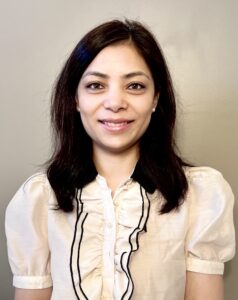Your cart is currently empty!
FASD NPN Spotlight: American Academy of Family Physicians (AAFP)
FASD United is excited to spotlight each of the CDC’s National Partner Network organizations. We launched our spotlight series in March with a feature on the American Academy of Pediatrics (AAP). The National Partner Network (NPN) is a collaborative coalition of organizations dedicated to advancing key goals, including reducing prenatal alcohol exposure (PAE) and substance use, enhancing support services and access to care, and improving the identification and health of children and families affected by FASDs (CDC, 2023). As a proud participant in this collaborative effort from 2022 to 2026, we are excited to contribute to public education on FASD and prenatal substance exposure alongside these exceptional partners.

Program & Evaluation Strategist
Health of the Public and Science
American Academy of Family Physicians
This April, we are proud to feature the American Academy of Family Physicians (AAFP) and Dr. Rajani Bharati, Program & Evaluation Strategist. Rajani is excited to spread the word about the many resources available on the AAFP’s webpage for Excessive Alcohol Use, including a Practice Manual on alcohol screening, information on reimbursement and coding, trainings, and much more.
Rajani told us that she is proud to work for AAFP because, “Family physicians support their patients and their families to adopt healthy behaviors over the course of their life. They build long-term relationships and provide whole-person patient-centered care.”
Rajani describes AAFP’s mission as “empowering over 130,000 family physicians from every U.S. state. That adds up to almost 193 million doctor visits every year.” With such substantial numbers, AAFP is able to positively impact millions of lives. Rajani adds that, “these physicians have an opportunity to provide a continuity of care, from preconception and maternity care to care for the child.”
Through the NPN partnership, AAFP is working to address PAE and FASD by working to enhance family physicians’ capacity to screen for alcohol use during pregnancy and learn how to identify patients with FASD. AAFP is educating doctors about PAE and FASD by providing educational materials and information, whose reach is amplified by what Rajani calls “AAFP’s strong relationship with our state chapters.”
During her time at AAFP, Rajani has gained a strong depth of knowledge about alcohol screening, pointing out that, “When it comes to screening, a lot of pregnant people have consumed alcohol prior to knowing they are pregnant. In response, AAFP is encouraging family physicians to screen for alcohol for everyone, not just pregnant people, so they can intervene during that critical period.”
Rajani is quick to point out how AAFP recognizes that addressing alcohol use during pregnancy goes beyond medical care, saying, “There are the underlying social determinants of health that we need to address, and we emphasize a holistic prevention strategy.”
AAFP’s recent CME course on PAE is one project Rajani is most proud of, and Rajani told us how it’s showing real tangible results. “In just the last 6 months, already 100 family physicians have taken this CME course on how to implement alcohol screening. We found a 10% increase in screening rates for PAE and other substance use in these 100 practices.” The CME course includes a video produced by FASD United highlighting our PAE resources, a product that Rajani singled out as “very helpful to our providers.”
While AAFP’s primary focus for years 1 and 2 of the NPN collaboration has been PAE screening, Rajani shared her excitement for AAFP’s focus on FASD support in year 3, saying “We are planning to encourage family physicians to identify FASD and to recognize the signs and symptoms.” In year 3 of the NPN project, AAFP is planning to create a CME course on the identification of FASD. “That’s our future goal. We want to focus on early diagnosis and intervention for people with FASD.”
AAFP has already been sharing many of FASD United’s resources with family physicians. Rajani says, “We direct providers to refer patients with questions to FASD United’s Family Navigator program. That’s very helpful to have one central point of contact to refer patients to.” Rajani also spoke about AAFP’s “Neighborhood Navigator” where family physicians enter their location to find community resources. “We are working on adding FASD-related resources to this system, as they are identified by our local state chapters.”
Partnerships are key, as Rajani emphasizes, “I value so much the collaboration between FASD United and us at AAFP. Since we are on the provider side, FASD United helps us get insight into the living experience of FASD” describing how working with FASD United to educate AAFP state chapter representatives “motivates our providers to do more on FASD.”
The collaboration with the NPN organizations is particularly valuable to Rajani. “I have experienced a strong sense of camaraderie with the NPN partners. The collective effort within the NPN has allowed us to significantly amplify our impact.”
When asked to describe AAFP’s most significant collaborative effort so far, Rajani was quick to point to their past conference. “We had an exhibit booth at a family medicine conference. We showed the video created by FASD United at the booth and we had “Let’s Talk” materials from another partner, Oak Ridge Associated Universities (ORAU). We showcased materials from all the NPN members at that conference.”
FASD United thanks Rajani Bharati for her passion and dedication, and for taking the time to share her experiences with us for this spotlight. We are proud to highlight AAFP as a key CDC partner organization that shares our goal of creating a more just, FASD-informed world while promoting collaboration across different entities.
*This project is supported by the Centers for Disease Control and Prevention of the U.S. Department of Health and Human Services (HHS) as part of a financial assistance award funded by CDC/HHS. The contents are those of the author(s) and do not necessarily represent the official views of, nor an endorsement, by CDC/HHS, or the U.S. Government.
